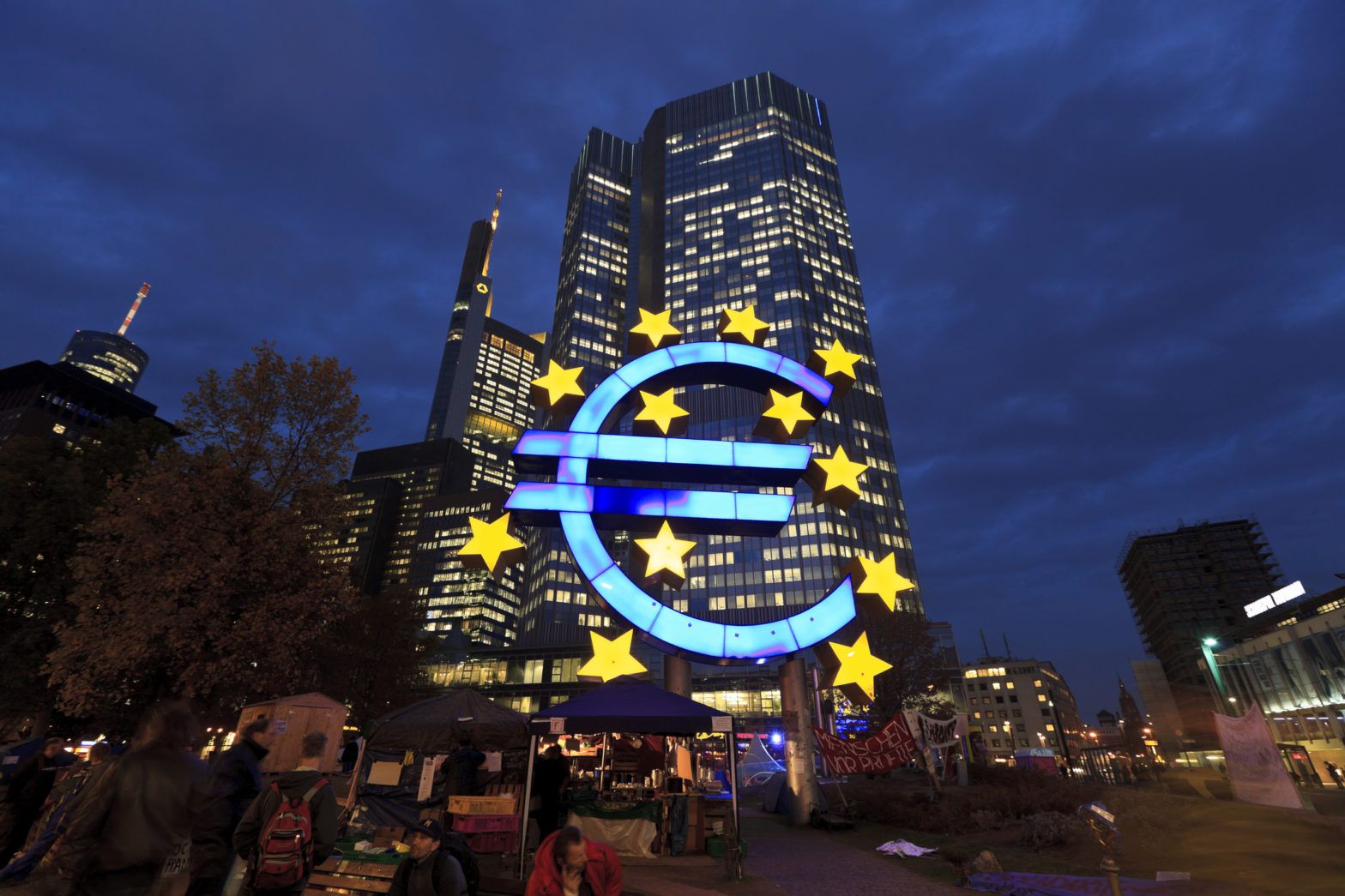The latest European economic data and political developments in Italy point towards an extension of the European Central Bank’s three-year-old quantitative easing programme, according to David Zahn, head of European fixed income at Franklin Templeton.
“Officially, QE is due to end in September this year, but with eurozone growth data softer recently and inflation also relatively muted, we think it would be premature for the European Central Bank (ECB) to embark on a tightening cycle,” Zahn said, in a note to investors.
“Our expectation is that current ECB President Mario Draghi will extend the asset-buying programme at least to the end of this year and most likely into 2019.”
As a result, eurozone interest-rate hikes are unlikely before 2020, he said.
“With further tapering possible, we believe the purchase programme will lean even more towards private assets, such as corporate bonds, as the ECB continues down the path of reducing government bond buying,” Zahn said.
“A continued focus on corporate bonds should also help maintain narrow credit spreads, while government purchases can continue to be reduced.”
The ECB started its quantitative easing programme in March 2015 and it has given indications that asset purchases will end in September, depending on the economic climate. It is expected that the bank’s governing council will use its meeting on June 14 to provide more details on whether it plans to extend the programme or provide a timeline for wrapping it up.
Italy adds uncertainty
“Political developments in Italy, in particular, have contributed to a general widening of risk premia in Europe,” Zahn said.
“Since the League and Five Star Movement have successfully formed a government, we expect a loosening of purse strings in Italy. The bond market has already reacted negatively to this possibility.”
The Italian bond market sold off quite considerably amid political turmoil in Italy at the end of May, but Zahn said the economic fundamentals remain unchanged.
“The situation in Italy is very country specific. If this were an existential risk with a real chance of Italy leaving the European Union, then we would likely see the euro under pressure, along with Spanish and French bonds.
“In our view, a lot of the recent market anxiety has been driven by positioning, as investors have capitulated out of Italian bonds. Now, we are seeing a return to normality. This also means there will likely be a lot more volatility in Italian spreads, as well as European fixed income in general, because this situation opens up the question of whether there will be reforms in Europe. A risk premium will now be built in, which we view as positive.”
However, the turmoil in Italy provides another wake-up call for Brussels, Zahn said.
“First, the United Kingdom wanted to leave the EU, and now Italy has stated it wants adjustments made to the relationship. It’s important to note that the Five Star and League parties were elected not for anti-euro reasons, but to push for reforms in Europe. So, it’s likely we will see a change to Italy’s relationship with Europe in the future.”
QE options open
Zahn said these considerations will affect the ECB discussions at its meeting on June 14 and will likely encourage its decision to keep QE options open.
GDP growth in the eurozone slowed significantly in the first quarter of the year falling to 0.4% from 0.7%, which analysts blamed on the snowy cold weather.
“With growth continuing to slow, inflation still low and now political risk in the eurozone, it’s unlikely the ECB will stop QE until there is some resolution,” Zahn said.
“The recent flare-up in Italy only reinforces our view that the ECB will extend the asset-buying programme into 2019. And, we think the likelihood of rate hikes is now pushed out much further into the future.
“It’s much easier for the ECB to adapt (grow or reduce) an existing QE programme than to restart an expired programme.
“So, we think ECB President Mario Draghi would rather keep the current QE programme running at a low level, until there is more data on the impact of political developments in Italy.”
However, Zahn said he expected the ECB governing council to use the June meeting to be more explicit about its timeline for raising interest rates after the QE programme ends. “If it pushes QE past the end of the year, it’s difficult to see interest rate hikes in the eurozone before 2020,” he said.







